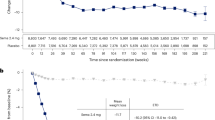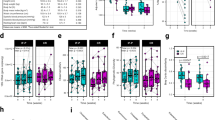Abstract
Background/Objectives:
PGC-1α is an important regulatory factor for energy and glucose metabolism. Therefore, we investigated whether the PGC-1α genotype (rs10517030 and rs10212638) affects the incidence of type 2 diabetes mellitus (T2DM) and sought to explain the interactions between their variants and nutrient intake on the development of T2DM.
Subjects/Methods:
Subjects aged 40–65 years of both genders were from the Ansung/Ansan cohorts (8842 adults) in Korea. Associations of PGC-1α variants rs10517030 and rs10212638 with T2DM were analyzed in a dominant genetic model, and were tested for interactions of genotypes and nutrients with T2DM risk. It was adjusted for covariates related to glucose metabolism.
Results:
Three variants, rs10517030, rs10517032 and rs10212638, were positively associated with T2DM prevalence. Single-nucleotide polymorphisms, rs10517030 and rs10517032, had strong association (r2=0.963). In the glucose tolerance tests, odds ratios (ORs) for serum glucose levels at 120 min were higher for subjects who were in the minor-allele group (minor allele homozygotes and heterozygotes) than for the major-allele group (major allele homozygotes) for rs10517030 variants. Serum insulin levels at 60 min had a lower ORs in the minor-allele group of rs10517030 variants. The interaction between energy intake and PGC-1α rs10517030 variants also affected T2DM risk. PGC-1α minor alleles were linked to T2DM prevalence and homeostasis model assessment estimate of insulin resistance (HOMA-IR) only in the low-energy groups, and HOMA-B was significantly negatively associated with the minor-allele group of PGC-1α rs10517030 variants, only in the low-energy-intake groups.
Conclusions:
These data suggest that Koreans with the minor alleles of PGC-1α rs10517030, rs10517032 and rs10212638 are at greater risk of T2DM, and that a low-energy diet is more protective against the development of T2DM in subjects with the major alleles of rs10517030 and rs10517032.
This is a preview of subscription content, access via your institution
Access options
Subscribe to this journal
Receive 12 print issues and online access
$259.00 per year
only $21.58 per issue
Buy this article
- Purchase on Springer Link
- Instant access to full article PDF
Prices may be subject to local taxes which are calculated during checkout
Similar content being viewed by others
References
Chan JC, Malik V, Jia W, Kadowaki T, Yajnik CS, Yoon KH et al. Diabetes in Asia: epidemiology, risk factors, and pathophysiology. JAMA 2009; 301: 2129–2140.
Coope A, Torsoni AS, Velloso LA . Mechanisms in endocrinology: metabolic and inflammatory pathways on the pathogenesis of type 2 diabetes. Eur J Endocrinol 2016; 174: R175–R187.
Wu H, Deng X, Shi Y, Su Y, Wei J, Duan H . PGC-1alpha, glucose metabolism and type 2 diabetes mellitus. J Endocrinol 2016; 229: R99–R115.
Puigserver P . Tissue-specific regulation of metabolic pathways through the transcriptional coactivator PGC1-alpha. Int J Obes (Lond) 2005; 29 (Suppl 1), S5–S9.
Nakamura MT, Yudell BE, Loor JJ . Regulation of energy metabolism by long-chain fatty acids. Prog Lipid Res 2014; 53: 124–144.
Ling C, Del Guerra S, Lupi R, Rönn T, Granhall C, Luthman H et al. Epigenetic regulation of PPARGC1A in human type 2 diabetic islets and effect on insulin secretion. Diabetologia 2008; 51: 615–622.
Oropeza D, Jouvet N, Bouyakdan K, Perron G, Ringuette LJ, Philipson LH et al. PGC-1 coactivators in beta-cells regulate lipid metabolism and are essential for insulin secretion coupled to fatty acids. Mol Metab 2015; 4: 811–822.
Valtat B, Riveline JP, Zhang P, Singh-Estivalet A, Armanet M, Venteclef N et al. Fetal PGC-1alpha overexpression programs adult pancreatic beta-cell dysfunction. Diabetes 2013; 62: 1206–1216.
Oberkofler H, Hafner M, Felder T, Krempler F, Patsch W . Transcriptional co-activator peroxisome proliferator-activated receptor (PPAR)gamma co-activator-1beta is involved in the regulation of glucose-stimulated insulin secretion in INS-1E cells. J Mol Med (Berl) 2009; 87: 299–306.
Kaul N, Singh YP, Bhanwer AJ . The influence of ethnicity in the association of WC, WHR, hypertension and PGC-1alpha (Gly482Ser), UCP2 -866 G/A and SIRT1 -1400 T/C polymorphisms with T2D in the population of Punjab. Gene 2015; 563: 150–154.
Ek J, Andersen G, Urhammer SA, Gaede PH, Drivsholm T, Borch-Johnsen K et al. Mutation analysis of peroxisome proliferator-activated receptor-gamma coactivator-1 (PGC-1) and relationships of identified amino acid polymorphisms to type II diabetes mellitus. Diabetologia 2001; 44: 2220–2226.
Hara K, Tobe K, Okada T, Kadowaki H, Akanuma Y, Ito C et al. A genetic variation in the PGC-1 gene could confer insulin resistance and susceptibility to type II diabetes. Diabetologia 2002; 45: 740–743.
Muller YL, Bogardus C, Pedersen O, Baier L . A Gly482Ser missense mutation in the peroxisome proliferator-activated receptor gamma coactivator-1 is associated with altered lipid oxidation and early insulin secretion in Pima Indians. Diabetes 2003; 52: 895–898.
Ha CD, Cho JK, Han T, Lee SH, Kang HS . Relationship of PGC-1alpha gene polymorphism with insulin resistance syndrome in Korean children. Asia Pac J Public Health 2015; 27: 544–551.
Kunej T, Globocnik Petrovic M, Dovc P, Peterlin B, Petrovic D . A Gly482Ser polymorphism of the peroxisome proliferator-activated receptor-gamma coactivator-1 (PGC-1) gene is associated with type 2 diabetes in Caucasians. Folia Biol (Praha) 2004; 50: 157–158.
Lacquemant C, Chikri M, Boutin P, Samson C, Froguel P . No association between the G482S polymorphism of the proliferator-activated receptor-gamma coactivator-1 (PGC-1) gene and type II diabetes in French Caucasians. Diabetologia 2002; 45: 602–603.
Leick L, Fentz J, Bienso RS, Knudsen JG, Jeppesen J, Kiens B et al. PGC-1{alpha} is required for AICAR-induced expression of GLUT4 and mitochondrial proteins in mouse skeletal muscle. Am J Physiol Endocrinol Metab 2010; 299: E456–E465.
Lee YH, Kang ES, Kim SH, Han SJ, Kim CH, Kim HJ et al. Association between polymorphisms in SLC30A8, HHEX, CDKN2A/B, IGF2BP2, FTO, WFS1, CDKAL1, KCNQ1 and type 2 diabetes in the Korean population. J Hum Genet 2008; 53: 991–998.
Kim JH, Shin HD, Park BL, Cho YM, Kim SY, Lee HK et al. Peroxisome proliferator-activated receptor gamma coactivator 1 alpha promoter polymorphisms are associated with early-onset type 2 diabetes mellitus in the Korean population. Diabetologia 2005; 48: 1323–1330.
Park S, Daily JW, Zhang X, Jin HS, Lee HJ, Lee YH . Interactions with the MC4R rs17782313 variant, mental stress and energy intake and the risk of obesity in Genome Epidemiology Study. Nutr Metab (Lond) 2016; 13: 38.
Bedogni G, Malavolti M, Severi S, Poli M, Mussi C, Fantuzzi AL et al. Accuracy of an eight-point tactile-electrode impedance method in the assessment of total body water. Eur J Clin Nutr 2002; 56: 1143–1148.
Association: AD. 2. Classification and Diagnosis of Diabetes. Diabetes Care 2016; 39 (Suppl 1), S13–S22.
Park S, Zhang X, Lee NR, Jin HS . TRPV1 gene polymorphisms are associated with type 2 diabetes by their interaction with fat consumption in the Korean Genome Epidemiology Study. J Nutrigenet Nutrigenomics 2016; 9: 47–61.
Brown TA . Genomes. 2nd edn. Wiley-Liss: Oxford, 2002.
Karolchik D, Hinrichs AS, Kent WJ . The UCSC Genome Browser. Curr Protoc Bioinformatics 2012; Chapter 1: Unit 1.4.
Liu C, Lin JD . PGC-1 coactivators in the control of energy metabolism. Acta Biochim Biophys Sin (Shanghai) 2011; 43: 248–257.
Bhat A, Koul A, Rai E, Sharma S, Dhar MK, Bamezai RN . PGC-1alpha Thr394Thr and Gly482Ser variants are significantly associated with T2DM in two North Indian populations: a replicate case-control study. Hum Genet 2007; 121: 609–614.
Fanelli M, Filippi E, Sentinelli F, Romeo S, Fallarino M, Buzzetti R et al. The Gly482Ser missense mutation of the peroxisome proliferator-activated receptor gamma coactivator-1 alpha (PGC-1 alpha) gene associates with reduced insulin sensitivity in normal and glucose-intolerant obese subjects. Dis Markers 2005; 21: 175–180.
Barroso I, Luan J, Sandhu MS, Franks PW, Crowley V, Schafer AJ et al. Meta-analysis of the Gly482Ser variant in PPARGC1A in type 2 diabetes and related phenotypes. Diabetologia 2006; 49: 501–505.
He ZH, Hu Y, Li YC, Gong LJ, Cieszczyk P, Maciejewska-Karlowska A et al. PGC-related gene variants and elite endurance athletic status in a Chinese cohort: a functional study. Scand J Med Sci Sports 2015; 25: 184–195.
Handschin C, Spiegelman BM . Peroxisome proliferator-activated receptor gamma coactivator 1 coactivators, energy homeostasis, and metabolism. Endocr Rev 2006; 27: 728–735.
Esterbauer H, Oberkofler H, Linnemayr V, Iglseder B, Hedegger M, Wolfsgruber P et al. Peroxisome proliferator-activated receptor-gamma coactivator-1 gene locus: associations with obesity indices in middle-aged women. Diabetes 2002; 51: 1281–1286.
Andrulionyte L, Peltola P, Chiasson JL, Laakso M . Single nucleotide polymorphisms of PPARD in combination with the Gly482Ser substitution of PGC-1A and the Pro12Ala substitution of PPARG2 predict the conversion from impaired glucose tolerance to type 2 diabetes: the STOP-NIDDM trial. Diabetes 2006; 55: 2148–2152.
Oberkofler H, Hafner M, Felder T, Krempler F, Patsch W . Transcriptional co-activator peroxisome proliferator-activated receptor (PPAR)gamma co-activator-1beta is involved in the regulation of glucose-stimulated insulin secretion in INS-1E cells. J Mol Med 2009; 87: 299–306.
Ferrannini E, Mari A . beta-Cell function in type 2 diabetes. Metabolism 2014; 63: 1217–1227.
Ma RC, Chan JC . Type 2 diabetes in East Asians: similarities and differences with populations in Europe and the United States. Ann N Y Acad Sci 2013; 1281: 64–91.
Knoll N, Jarick I, Volckmar AL, Klingenspor M, Illig T, Grallert H et al. Gene set of nuclear-encoded mitochondrial regulators is enriched for common inherited variation in obesity. PLoS One 2013; 8: e55884.
Goyenechea E, Crujeiras AB, Abete I, Parra D, Martinez JA . Enhanced short-term improvement of insulin response to a low-caloric diet in obese carriers the Gly482Ser variant of the PGC-1alpha gene. Diabetes Res Clin Pract 2008; 82: 190–196.
Acknowledgements
Funding for this study was provided by the Academic Research Fund of Hoseo University in 2016 (2016-0088). SP participated in the experimental design, data analysis and writing of the manuscript; BCK analyzed the data; and SK participated in discussing the results and writing the manuscript. All authors contributed substantially to the work and have read and approved the submitted version. The English in this document has been checked by at least two professional editors, both native speakers of English. For a certificate, please see: http://www.textcheck.com/certificate/vOLrKX.
Author information
Authors and Affiliations
Corresponding author
Ethics declarations
Competing interests
The authors declare no conflict of interest.
Rights and permissions
About this article
Cite this article
Park, S., Kim, B. & Kang, S. Interaction effect of PGC-1α rs10517030 variants and energy intake in the risk of type 2 diabetes in middle-aged adults. Eur J Clin Nutr 71, 1442–1448 (2017). https://doi.org/10.1038/ejcn.2017.68
Received:
Revised:
Accepted:
Published:
Issue Date:
DOI: https://doi.org/10.1038/ejcn.2017.68



